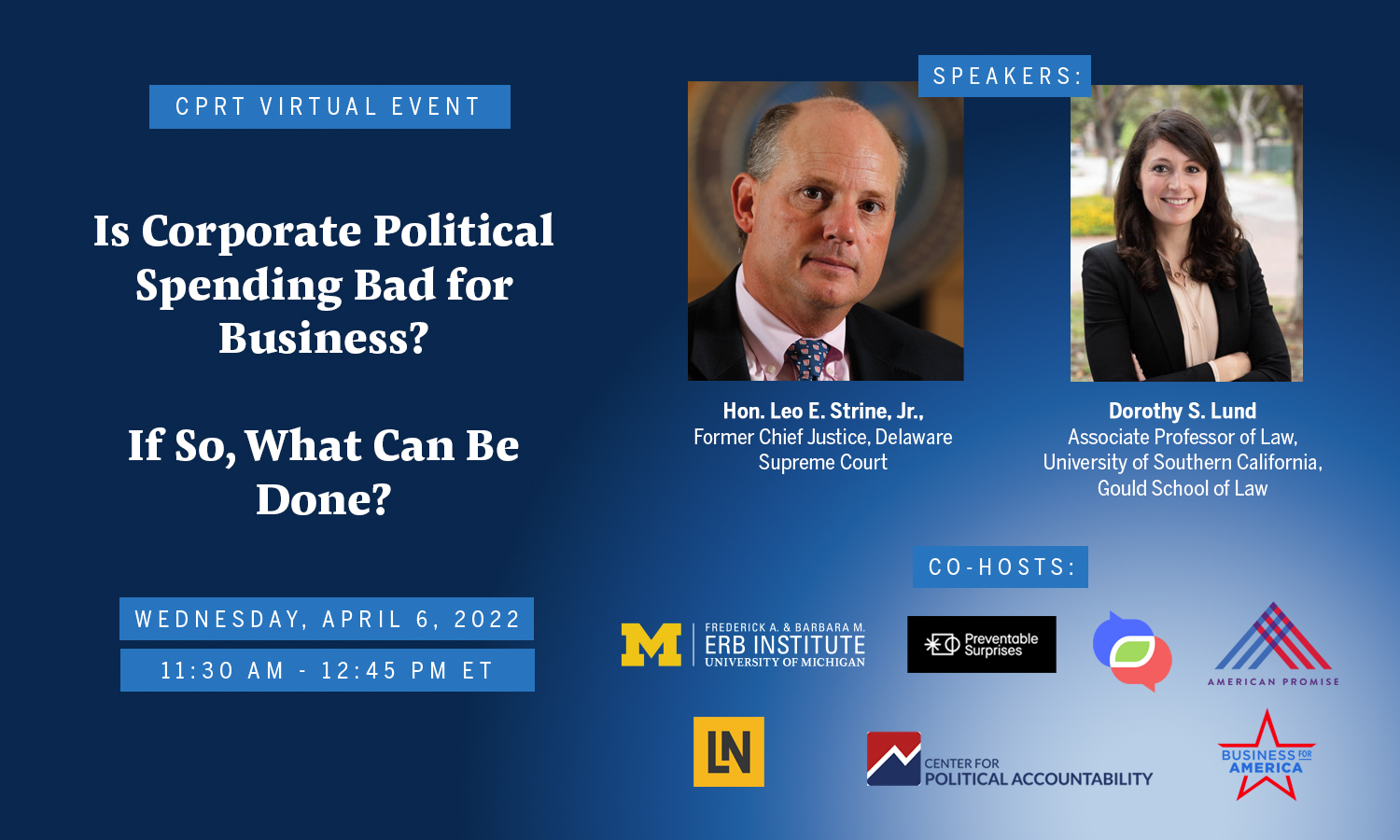
- This event has passed.
Is Corporate Political Spending Bad for Business? If So, What Can Be Done?
April 6, 2022 @ 11:30 am - 12:45 pm EDT

A conversation with Hon. Leo E. Strine, Jr., former Chief Justice of the Supreme Court of Delaware, of counsel at the law firm of Wachtell, Lipton, Rosen & Katz and the Michael L. Wachter Distinguished Fellow at the University of Pennsylvania’s Carey Law School, and Dorothy S. Lund, Associate Professor of Law, University of Southern California, Gould School of Law, authors of, “Corporate Political Spending Is Bad Business” (Harvard Business Review, Jan-Feb, 2022)
In debates over corporate political spending, business and shareholder interest are often counterposed against the interests of other stakeholders and society.
Yet, in their recent HBR article, Leo E. Strine and Dorothy Lund argue that there is “no sound business justification for political spending,” and that, in fact, such spending greatly heightens corporate risk.
Specifically, they contend that shareholders lose due to:
- Weak Governance: Companies that spend heavily on politics perform poorly compared to those that don’t, as management is distracted from innovation and the core business.
- Portfolio Costs: Shareholders with broad portfolios do not benefit from gains due to “rent-seeking,” which transfers value from one company to another or externalizes costs to the rest of their portfolio, taxpayers, or society as a whole.
- Hypocrisy Traps: Political spending heightens reputational risks and the potential to contradict commitments to employees, customers, investors and other stakeholders.
- Influence-Seeking: The ‘freedom’ to engage in election spending following Citizens United, has exposed companies to greater pressure to contribute.
- Legitimacy Problems: Companies’ ability to align contributions with diverse shareholder political views is suspect and bipartisan support from Americans who oppose corporate political spending is long-standing and growing.
Given these costs and risks, what can be done… for and by investors? For and by boards and management? For and by citizens in American democracy?
Please join us with your questions, perspective, and suggestions as we explore practical, non-partisan strategies for executives, directors and investors.
Moderator: Elizabeth Doty, Director of the Erb Institute’s Corporate Political Responsibility Taskforce at the University of Michigan
And with:
Terry Nelidov, Managing Director, The Erb Institute at the University of Michigan
Tom Lyon, Faculty Director, The Erb Institute at the University of Michigan
Jerome Tagger, Chief Executive Officer, Preventable Surprises
Jeff Clements, President, American Promise
Bill Shireman, CEO, In This Together America
As a University organization, the Erb Institute serves as a hub for thought leadership, convening diverse perspectives for productive discussion and debate. In that process, we adhere to a policy of strict non-partisanship, and do not support, endorse or advocate for any political party, candidate or legislation. All of the co-hosting organizations list above are non-partisan, and together, we invite those interested in constructive, non-partisan, principles-based discussion.